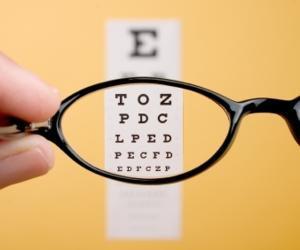How to Prevent Cataracts

When aging and physical injury affect the tissues that consist of your eye’s lens, cataracts develops.
Some genetic disorders lead to different health challenges and enhance the risk of suffering cataracts. Other medical and eye conditions that can also cause cataracts are trauma, diabetes past eye infection and surgery. The use of steroid solutions can also cause cataracts to develop.
Prevention of Cataracts
For people aged 40 and above, cataracts are the most common reason for loss of vision. Prevention Blindness America states that this condition is more prevalent in the world than macular degeneration, glaucoma and diabetic retinopathy combined.
Do not fear! There are approaches for preventing eye cataracts that are efficient for all ages. Apart from preventing eye cataracts, these steps can slow down the development of the problem. Do not wait to seek treatment only when your vision starts getting blurry. Below are tips and tricks than can help you tackle the problem early.
There are little if any studies to prove that measures of preventing eye cataracts or slowing down their development are helpful. However, medical experts believe that several steps can alleviate symptoms. They are:
- Stop smoking. Let your doctor provide suggestions of how to quit effectively. Examples of strategies that are available include counseling and anti-smoking medications.
- Regular eye examinations. Let doctors conduct regular eye tests to detect early signs of the condition and other eye infections. Your doctor should tell you how often these examinations should be.
- Reduce alcohol consumption. The risk of cataracts is increased by excessive consumption of alcohol.
- Consume a healthy diet. Add fresh vegetables and fruits to your diet. Ensure that the various fruits and vegetables come in different colors. These provide your eyes with enough nutrients and vitamins to fight disease. These have numerous antioxidants that keep your eyes healthy consistently.
- Maintain a healthy weight. Ensure you exercise appropriately most days of each week to maintain your weight. Otherwise, reduce your daily caloric intake if you are overweight or obese. Increase the intensity of your exercise too.
- Treat other health conditions. Ensure efficient management of conditions such as diabetes and others that typically increase development of cataracts.
- Remove sunglasses. The notion that increased exposure to the sun’s UV rays causes eye damage is a fact. Typically, UV rays cause the conjunctiva (the material that covers your eye’s whites) to thicken. This consequently increases the risk of retinal damage and cataracts. However, wearing sunglasses too much blocks healthy antioxidants from the sun. Remove them occasionally so that healthy light wavelengths hit your eyes. You need these for eye nourishment and overall body health.
There is hardly any study that proves the prevention of cataracts by antioxidant pills. However, a recent study on large population samples indicated that observing a diet rich in minerals and vitamins actually led to a reduced risk of cataracts. Therefore, eat more vegetables and fruits, as they supply your body with essential nutrients.
Lifestyle Prior to Surgery
Before you choose surgery as an option to control cataracts, try the following:
- Read using magnifying glasses.
- Get the most accurate prescription of contact lenses and eye glasses.
- Use brighter or more lamps in your home to improve its lighting overall.
- Reduce the hours you spend driving at night.
- Reduce the glare of daylight when you are outdoors by wearing a broad-brimmed hat or sunglasses.
Observe self-care measures to reduce risks and symptoms albeit temporarily. You may lose vision as the cataracts grow. Lastly, consider having cataract surgery only if your loss of vision interferes with your ordinary lifestyle.












